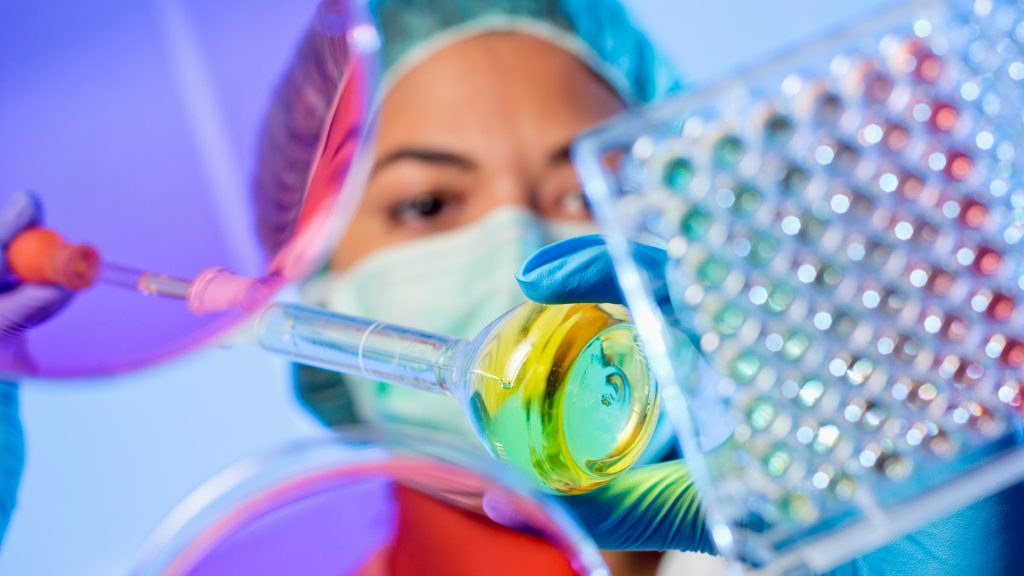
Exploring the Essential Roles of Enzymes in Biochemistry
Enzymes are proteins that catalyze biochemical reactions. They are the lifeblood of biochemistry, playing a vital role in a variety of processes. From digestion to regulating metabolism, enzymes have an enormous impact on our bodies and everyday lives. Let’s explore some of their essential roles in biochemistry.
1. Digestion
The primary role of enzymes is to break down complex molecules into simpler ones. This process is known as digestion, and it is essential for us to obtain nutrients from food. Our stomachs contain hydrochloric acid, which helps break down food into smaller components, but it can’t do this alone; enzymes like pepsin and trypsin are also needed to complete the job.
Digestion is a vital process of biochemistry, as it helps break down the molecular structures of food into components that are small enough to be transported into our bodies. These smaller molecules are necessary for cellular growth and utilization, so digestion is the key to unlocking all of the essential nutrients food provides. Without digestive breakdowns, even with intaking nutrients, our cells would be unable to adequately utilize these essential resources. Since digestion is crucial for allowing us to use the energy, proteins, carbohydrates, and fat contained in different foods (as well as vitamins and minerals), it can easily be said that proper digestion plays an indispensable role in biochemistry.
2. Metabolic Regulation
Enzymes play an important role in regulating the body’s metabolism by controlling how quickly or slowly chemical reactions occur within cells. This control is achieved through different enzyme-mediated pathways that lead to specific products or products with desired properties. For example, when carbohydrates are metabolized in the body, they are converted into glucose which can be used for energy or stored for later use.
Metabolic regulation is of crucial importance in biochemistry, as it allows organisms to control their internal environment and respond to outside influences. Metabolism is the primary way energy and biochemical compounds are exchanged between organisms and the environment, making efficiency critical. Metabolic regulation plays an important role in this exchange by allowing organisms to adjust based on their current needs while maximizing energy efficiency. Additionally, since metabolic systems are linked in complex ways, understanding how these regulatory processes work can help explain a wide variety of biological phenomena that would otherwise be difficult to predict. In short, metabolic regulation provides a vital mechanism for managing cellular activity and responding to environmental changes – making it an essential component of biochemistry.
3. DNA Replication
DNA replication occurs when a cell divides so it can pass its genetic information onto daughter cells through mitosis or meiosis. During this process, enzymes help unwind and separate strands of DNA so that each strand can be copied before rejoining again into two identical sets of DNA molecules.
DNA replication is an essential process in biochemistry. It allows for the accurate duplication of DNA and hereditary information, a fundamental precondition of cellular division. In other words, without DNA replication, we would not be alive today. It provides the basis for how our cells divide and differentiate, creating organisms like us humans! Not only does it ensure these incredibly complex processes function correctly, but it also helps preserve genetic material over time. As a result, it’s an incredibly important biochemical reaction; one that must be carefully managed to ensure the stability of all living things.
4. Protein Synthesis
Proteins are large molecules composed of amino acids that play many vital roles, providing structure and acting as hormones or neurotransmitters in our bodies. To build proteins from amino acids, special enzymes called ribosomes must join them together in the correct order according to instructions provided by our genes encoded in DNA molecules; this is known as protein synthesis or translation and requires numerous enzymatic steps for successful completion.
Protein synthesis is an essential process in biochemistry that helps create the proteins our bodies depend on for optimal functioning. Each protein has a specific structure and function, so the production must be accurate and efficient. The process begins when DNA replicates itself and scatters its instructions along the mRNA strand so ribosomes can decode them. Then amino acids are added according to these instructions, creating various proteins within the cell. Without protein synthesis, our bodies couldn’t produce the vital protein molecules that direct how our cells grow, divide, and respond to different conditions. Thanks to this complex biochemical phenomenon, living organisms can maintain their structures and carry out important life processes.
5. Immunity
Enzymes also play a role in immunity by helping to eliminate foreign particles, such as bacteria and viruses, from our bodies via phagocytosis (the engulfing and breaking down of foreign particles). In addition, some enzymes act as antibodies that recognize and bind to foreign substances so other components of our immune system can neutralize them before they cause any harm.
Immunity is one of the essential components of biochemistry as it helps protect us from infection and disease. It is a key factor in maintaining overall health. Our immune system is fundamental to our everyday function; without it, we would be highly susceptible to illness and other ailments. Several factors, such as genetics, diet, medication, environment, and lifestyle choices, determine an individual’s immunity. A strong immune system ensures that our body is better equipped to fight off foreign invaders that could potentially cause disease or infection. Although certain vitamins, minerals, and pharmaceutical drugs can help bolster the body’s defenses against external forces, lifestyle changes may be the most effective way to strengthen your immunity. Eating a well-balanced diet, exercising regularly, and reducing stress levels can help boost immunities significantly. Ultimately, strengthening your immunity can help you lead a healthier life with a minimized risk of dangerous infections playing a major role in achieving this goal.
All these different roles illustrate just how essential enzymes are for biochemical processes such as digestion, metabolic regulation, DNA replication, protein synthesis, and immunity within our bodies! Without them, we would not function properly; fortunately, we can obtain them from plenty of dietary sources, including fruits, vegetables, and whole grains! So make sure you get your daily intake!

